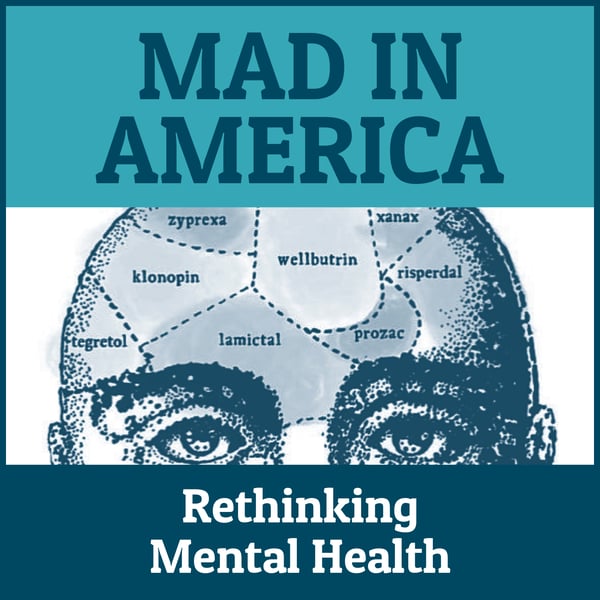Context and Care vs Isolate and Control - An Interview with Arthur Kleinman
Mad in America: Rethinking Mental Health
Mad in America
4.8 • 201 Ratings
🗓️ 24 April 2024
⏱️ 44 minutes
🧾️ Download transcript
Summary
Arthur Kleinman is a towering figure in psychiatry and medical anthropology. He has made substantial contributions to both fields over his illustrious career spanning more than five decades.
As a Professor of Medical Anthropology at Harvard University's Department of Global Health and Social Medicine and a Professor of Psychiatry at Harvard Medical School, Kleinman has profoundly influenced how medical professionals understand the interplay between culture, illness, and healing. His extensive body of work includes seminal books and numerous articles that have become foundational texts in medical anthropology. These writings explore the crucial role of personal and cultural narratives in shaping medical practices and patient care.
In recent years, Kleinman has increasingly focused on critiquing the prevailing practices within psychiatry, particularly the over-medicalization of mental health issues and the neglect of broader social and personal contexts that significantly impact patient care. His critiques advocate for a more nuanced and compassionate approach to psychiatry, one that recognizes the importance of individual patient stories and the socio-cultural dimensions of mental health.
In this interview, Kleinman explores critical issues facing modern healthcare. He discusses the often-overlooked narrative of patient experiences, critiques the mechanistic approaches that dominate U.S. healthcare, and offers insightful reflections on the global mental health movement.
***
Thank you for being with us to listen to the podcast and read our articles this year. MIA is funded entirely by reader donations. If you value MIA, please help us continue to survive and grow.
To find the Mad in America podcast on your preferred podcast player, click here
Transcript
Click on a timestamp to play from that location
| 0:00.0 | Welcome to the Mad in America podcast, your source for science, psychiatry, and social justice. |
| 0:14.0 | Hello everyone, and welcome to Mad in America. This is your host for today, Ayurdi Dhar. |
| 0:19.6 | Our guest today is renowned psychiatrist and medical anthropologist Dr. Arthur Kleinman. |
| 0:25.2 | Dr. Kleinman's work has significantly contributed to our understanding of the intersection between culture, illness, and healing. |
| 0:32.5 | With the career spanning over five decades, he has delved into the complexities of how cultural beliefs, social |
| 0:38.9 | structures, and personal experiences shape the experience of illness and the delivery of healthcare. |
| 0:45.7 | His research has influenced diverse fields, including anthropology, psychiatry, global |
| 0:51.4 | mental health, global health, making him a leading figure in the study of |
| 0:55.0 | medical anthropology. It has also earned him numerous awards. Dr. Kleinman, welcome to Matt in America. |
| 1:01.2 | My pleasure. The first thing that we will talk about is possibly one of your most influential |
| 1:05.7 | works, which is about illness narratives. So before we get into anything else, could you briefly tell us |
| 1:12.2 | what are illness narratives? |
| 1:14.6 | Everyone who falls ill with a, I don't mean a head cold that keeps you up at night, I mean |
| 1:22.4 | a serious illness of some sort, develops a story about their experience of illness. |
| 1:28.3 | And medical anthropologists make a distinction between the illness experience, using illness |
| 1:34.9 | to stand for the experience the person and the family context has of symptoms and of seeking |
| 1:43.0 | help and of responding to whatever is done treatment-wise |
| 1:48.2 | from disease. And we think of disease as the way that practitioners, not just biomedical |
| 1:57.2 | practitioners, but alternative and complementary practitioners as well, reconstruct the |
| 2:04.7 | illness experience in a particular set of categories. So let me give you an example. You're |
| 2:10.6 | short of breath all the time. You're wheezing. You go to see the doctor. The doctor says you |
| 2:15.7 | have asthma, okay? And that's a reconstruction. |
... |
Please login to see the full transcript.
Disclaimer: The podcast and artwork embedded on this page are from Mad in America, and are the property of its owner and not affiliated with or endorsed by Tapesearch.
Generated transcripts are the property of Mad in America and are distributed freely under the Fair Use doctrine. Transcripts generated by Tapesearch are not guaranteed to be accurate.
Copyright © Tapesearch 2025.

